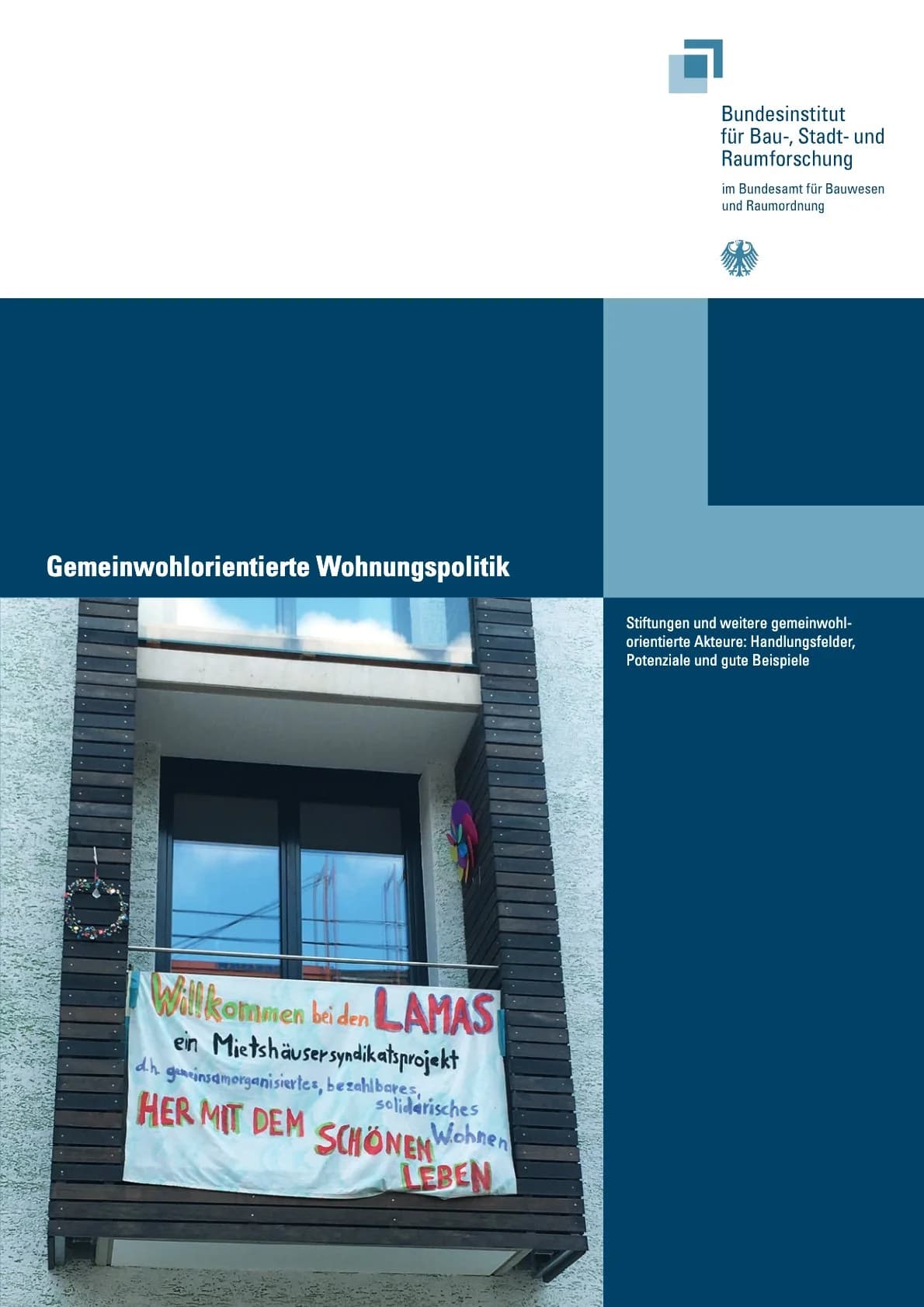AI-Generated Summary
Context and Purpose
The study titled "Gemeinwohlorientierte Wohnungspolitik" was conducted by the Federal Institute for Research on Building, Urban Affairs, and Spatial Development (BBSR) in cooperation with the Federal Ministry of the Interior, Building and Community in Germany. It examines the role of foundations and other actors focused on the common good in the housing sector, especially in light of increasing housing market pressures and the demand for affordable housing.
Key Findings
The report highlights the significance of the term "common good" in contemporary housing policies, reflecting the growing challenges of housing shortages and the need for sustainable living environments. It is essential to address the diverse living requirements that have emerged, including communal living and housing for individuals with special needs or lower economic means. The study identifies various actors in the common good-oriented housing market, including traditional foundations and innovative housing projects like the Mietshäuser Syndikat, which aims to prevent speculation in real estate.
Foundations as Housing Market Players
Foundations play a crucial role in providing affordable housing, particularly for vulnerable groups such as seniors and individuals with disabilities. The research finds that over 95% of foundations in Germany are non-profit, yet they cannot solely focus on housing provision under current tax laws. Instead, they engage in diverse business models that allow them to contribute effectively to housing solutions.
Business Models and Cooperation
The study outlines various business models employed by foundations, such as support for housing projects and the management of real estate assets for the common good. It emphasizes the importance of cooperation with municipalities and social organizations to achieve common goals in housing and urban development. This research also showcases successful case studies of foundations and other organizations that have effectively provided housing solutions, demonstrating the potential for collaborative approaches in tackling housing challenges.
European Comparisons
In addition to exploring the German context, the study includes comparisons with similar initiatives in other European countries. It emphasizes the need for cross-border cooperation and knowledge transfer among organizations focused on sustainable housing solutions. The findings indicate that many innovative housing projects in Europe, such as community land trusts, are successfully addressing the need for affordable and sustainable living spaces. These models could serve as inspiration for similar initiatives in Germany and beyond.
Recommendations for Policy Development
The study concludes with actionable recommendations for improving the framework for common good-oriented housing policies. It suggests enhancing collaboration among various stakeholders, including foundations, municipalities, and social organizations, to create effective housing solutions. Furthermore, it advocates for the integration of common good principles in urban planning and housing policies to ensure long-term sustainability and accessibility for all community members.
Conclusion
This research provides valuable insights into the potential of foundations and community-oriented organizations in addressing the pressing housing issues faced in urban environments. By examining successful models and advocating for collaborative efforts, the study aims to contribute to the ongoing discourse around sustainable housing solutions in Europe.
